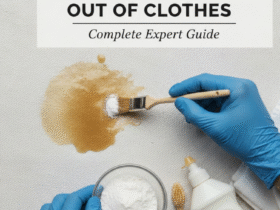In the expanding digital health market, herbal supplements have become a major focus for consumers looking for natural remedies and wellness solutions. However, this growing demand has also led to the rise of fraudulent websites and deceptive marketing tactics. “Herbciepscam” is a term that has emerged in online communities to describe suspicious or fraudulent platforms that falsely advertise herbal remedies. It represents the deceptive practices that target health-conscious individuals, often involving fake claims, unauthorized charges, and poor customer service. The term may not refer to a single company but rather to a pattern of dishonest behavior within the herbal supplement space.
Breaking Down the Term ‘Herbciepscam’
The word “herbciepscam” is a combination of three components: “herb,” “CIEP,” and “scam.” Here’s a breakdown of each part:
- Herb: Refers to natural supplements derived from plants, often marketed for various health benefits, such as stress relief, weight loss, and immune support.
- CIEP: This term is less clear and appears to be a placeholder or misleading acronym. It doesn’t seem to have a real-world connection to the herbal supplement industry. It’s likely used to create the illusion of legitimacy, making the product or company appear more official.
- Scam: This part of the term is straightforward and refers to fraudulent or deceptive practices aimed at exploiting consumers.
When combined, “herbciepscam” likely refers to websites or online stores promoting herbal products under misleading or fraudulent circumstances. These scams often involve misrepresentation of products, lack of transparency, and attempts to exploit unsuspecting customers.
What Herbciepscam Refers To in Online Communities
The term “herbciepscam” is not tied to any one specific company but is instead used in online discussions to identify patterns of fraudulent behavior. It is commonly found in forums, review sites, and social media platforms, where users share their experiences with suspicious herbal supplement websites. These discussions often focus on consumers who were misled by aggressive advertising tactics, “free trial” scams, or charged for products they never received.
In these communities, the term “herbciepscam” serves as a warning sign, alerting others to the dangers of fraudulent herbal supplement vendors. People who have fallen victim to these scams often share their stories to help others avoid similar pitfalls.
Why Are People Talking About Herbciepscam?
The increasing attention around “herbciepscam” stems from a surge in real consumer complaints. Many people have reported falling victim to online herbal supplement scams that lead to financial loss, poor-quality products, or even health risks. Some users have experienced issues with delayed shipments or, in the worst cases, never receiving their orders at all. Others have complained about recurring charges for subscriptions they didn’t sign up for or products that didn’t match the descriptions provided on the website.
Additionally, fake reviews and testimonials on these sites often mislead consumers into believing that the products are legitimate. These sites often use emotional marketing tactics, such as “limited time offers” or promises of instant health benefits, to pressure consumers into making impulsive purchases. As these problems have become more common, the term “herbciepscam” has gained traction as a way to discuss and warn others about these online scams.
What Makes a Site Like Herbciepscam Suspicious?
Certain signs can help you spot a “herbciepscam” website or product listing. Here are some of the most common red flags:
- Poor Website Design: Many fraudulent sites are poorly designed, with typographical errors, blurry product images, and inconsistent branding. If a website lacks professionalism, it could be a scam.
- Lack of Transparency: A legitimate company will provide clear contact information, including a physical business address and a phone number. If this information is missing or hard to find, it’s a major red flag.
- Vague Product Information: Genuine herbal supplement companies provide detailed information about their products, including ingredient lists, dosage instructions, and lab test results. Scam sites often make vague or misleading claims, relying on buzzwords like “natural” or “ancient formula” without offering any real proof of efficacy.
- Unsecure Payment Gateways: If a website lacks “https” in the URL or doesn’t show trusted checkout icons, it means your financial and personal data could be at risk.
How Herbal Scams Work Online – The Playbook
Herbal scams typically follow a similar blueprint, which begins with flashy advertisements on platforms like Instagram, YouTube, or Google. These ads often promise miraculous health benefits, sometimes featuring fake celebrity endorsements or exaggerated testimonials. The ads direct users to a landing page where they’re offered a “free trial” or “limited-time offer.”
Once the consumer enters their credit card information to cover shipping, they’re unknowingly enrolled in a subscription that charges them monthly for overpriced, ineffective products. These scams use emotional appeals, such as promises of weight loss, better sleep, or anti-aging benefits, to convince consumers to act quickly.
The problems don’t end with the initial transaction. Many victims report poor customer service, with emails going unanswered or refund requests being ignored. Additionally, many of the reviews on these sites are either fake or auto-generated, making it difficult for consumers to differentiate between legitimate feedback and fabricated content.
Herbciepscam and the Psychology of Consumer Trust
The rise of herbal scams is closely tied to the psychology of consumer trust. People are more likely to trust natural remedies, believing they are safer and less harmful than conventional medicine. Scammers exploit this belief by using language that resonates with health-conscious consumers, such as “plant-based,” “natural cure,” or “ancient remedy.” This emotional connection makes it easier for scammers to deceive their victims.
Moreover, the desperation some consumers feel to find effective solutions for chronic health problems or aging makes them more vulnerable to deceptive marketing tactics. The promise of a quick fix or miracle cure is especially tempting for individuals who have struggled to find relief through conventional means.
Real-Life Victim Experiences and Online Complaints
Numerous online forums and scam-tracking websites are filled with real-life victim accounts of people who have fallen prey to herbal scams. For example, one user on Reddit shared their experience of ordering a sleep-enhancing herbal product, only to find that they were charged $89 every month without consent. Attempts to contact customer service were met with silence, and the company continued to bill them despite their efforts to cancel the subscription.
Another user on ScamAdviser described receiving a completely different product than what was advertised—one without a label and no listed ingredients. These stories highlight the emotional and financial toll that herbciepscam-type scams can have on consumers.
Health and Financial Risks of Herbciepscam-Linked Products
Engaging with a “herbciepscam” site not only exposes consumers to financial loss but also to serious health risks. Many of these products contain untested or poorly regulated ingredients, which can lead to side effects or adverse reactions. Some consumers have reported allergic reactions, including rashes, stomach problems, or dizziness after using these products. Others may suffer from harmful drug interactions if they take the supplements alongside prescribed medications.
Moreover, these scams also jeopardize personal data. If a website lacks proper encryption, your payment and personal details could be compromised, leading to potential identity theft or fraud.
How to Spot a Herbal Scam Like Herbciepscam
To protect yourself from “herbciepscam” scams, here are a few tips to keep in mind when purchasing herbal supplements online:
- Look for Secure Payment Options: Only buy from sites that use HTTPS and display trusted payment icons, such as PayPal or credit card logos.
- Check for Transparency: Reliable herbal brands will provide detailed product information, including ingredients, lab results, and dosage instructions. If this information is vague or missing, be cautious.
- Read Independent Reviews: Avoid relying solely on reviews posted on the company’s website. Check independent platforms like Trustpilot or Reddit for unbiased feedback.
- Be Wary of Pressure Tactics: Scammers often use urgency tactics like “Only a few left in stock” or “Limited time offer.” Legitimate companies do not pressure customers into quick decisions.
The Role of Social Media in Boosting Herbciepscam Exposure
Social media platforms have played a significant role in amplifying the exposure of herbal scams. Through paid ads, influencer partnerships, and viral posts, scammers are able to reach millions of potential customers. These platforms, unfortunately, offer little regulation when it comes to health-related claims, making them fertile ground for deceptive marketing.
Some influencers, often unknowingly, promote these products because they are paid to do so. These promotions can mislead their followers into trusting fraudulent brands.
Regulatory Status: Are Authorities Aware of Herbciepscam?
Yes, authorities are becoming more aware of “herbciepscam” scams. Regulatory bodies like the Federal Trade Commission (FTC) and the Food and Drug Administration (FDA) are working to crack down on fraudulent practices within the herbal supplement industry. However, due to the lack of stringent regulations in the supplement market, many scams continue to slip through the cracks.
Consumers must remain vigilant and report any suspicious activity to help authorities take action more swiftly.
Legal Recourse for Victims of Herbal Supplement Scams
If you’ve fallen victim to a “herbciepscam” scam, there are steps you can take. First, contact your bank or credit card company to dispute any unauthorized charges. You can also file a complaint with the FTC or your country’s consumer protection agency. Posting about your experience on public forums can help raise awareness and warn others.
Tips to Stay Safe When Buying Herbal Supplements Online
To avoid falling victim to herbciepscam-type scams, it’s essential to do your research. Stick to well-known brands, check for lab tests, read real customer reviews, and avoid sites that use manipulative marketing tactics. Use secure payment methods and always verify the legitimacy of the seller before purchasing.
The Broader Impact of Herbciepscam on the Health Industry
Scams like “herbciepscam” can have a damaging effect on the entire health and wellness industry. Ethical companies suffer when consumers lose trust in herbal products due to fraudulent practices. As awareness of these scams grows, it’s likely that stricter regulations will be introduced to protect consumers and maintain the integrity of the herbal supplement market.
Should You Ever Trust Sites Like Herbciepscam?
The answer is no. Sites associated with “herbciepscam” often lack transparency, provide misleading claims, and fail to back up their products with credible science. If a website seems too good to be true, it probably is. Protect your health and your finances by avoiding these deceptive platforms.
Future of Herbciepscam-Type Scams: Evolve or Get Banned?
As digital literacy improves and consumer awareness increases, scams like “herbciepscam” will likely face more scrutiny. New regulations and tighter advertising policies may force these platforms to evolve or disappear. While the future is uncertain, one thing is clear: consumers must stay vigilant to protect themselves.
Conclusion
Herbciepscam highlights the growing issue of herbal supplement scams in the digital marketplace. As consumers turn to natural remedies for health and wellness, they must be aware of the risks posed by fraudulent sites. By staying informed and following the tips provided, you can protect yourself from falling victim to deceptive practices.
FAQs
- What is herbciepscam?
- Herbciepscam refers to fraudulent herbal supplement sites that deceive consumers with fake claims and unauthorized charges.
- How can I spot a herbciepscam website?
- Look for signs like poor website design, lack of ingredient transparency, fake reviews, and insecure payment methods.
- What are the dangers of herbciepscam?
- Risks include financial loss, health issues, and identity theft.
- How do I stay safe when buying herbal supplements online?
- Stick to reputable brands, check for lab testing, read independent reviews, and use secure payment options.
- Are authorities aware of herbciepscam-type scams?
- Yes, but due to regulatory gaps, scammers continue to operate. Consumer vigilance is key.
For More Updates Visit: Biomagazine











Leave a Reply